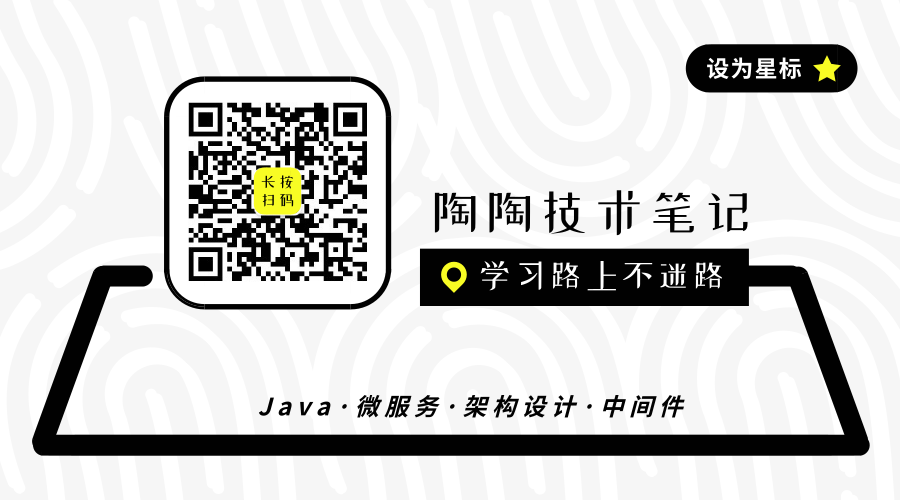1. Description
In the previous article, "Hyperledger Fabric 2.x Custom Smart Contract" shared the installation of the smart contract and used the cli client to call the contract; this article will use the Java code to access the blockchain network based on fabric-gateway-java . transaction, and integrates SpringBoot framework.
Fabric Gateway SDK implements the programming model of Fabric and provides a series of simple APIs for applications to interact with the Fabric blockchain network;
Network topology diagram:
Applications delegate their respective network interactions to their gateways, and each gateway is aware of the network channel topology, including the organization's multiple peer nodes and ordering nodes, allowing the application to focus on business logic; peer nodes can use the gossip protocol to communicate within the organization and Organizations communicate with each other.
2. Mavn dependency
Add the dependencies of the gateway sdk:
<dependency>
<groupId>org.hyperledger.fabric</groupId>
<artifactId>fabric-gateway-java</artifactId>
<version>2.2.3</version>
</dependency>
3. Prepare the configuration file
The directory structure of the project is shown in the following figure:
3.1. Preparing the network certificate
Create a directory crypto-config and copy the certificate files of the orderer and peer nodes into it.
The certificate files are copied from the fabric-samples directory of test-network to the ordererOrganizations and peerOrganizations folders:
3.2. Creating a Network Configuration
Create file connection.json with the following content:
{
"name": "basic-network",
"version": "1.0.0",
"client": {
"organization": "Org1",
"connection": {
"timeout": {
"peer": {
"endorser": "300"
},
"orderer": "300"
}
}
},
"channels": {
"mychannel": {
"orderers": [
"orderer.example.com"
],
"peers": {
"peer0.org1.example.com": {
"endorsingPeer": true,
"chaincodeQuery": true,
"ledgerQuery": true,
"eventSource": true
},
"peer0.org2.example.com": {
"endorsingPeer": true,
"chaincodeQuery": true,
"ledgerQuery": true,
"eventSource": true
}
}
}
},
"organizations": {
"Org1": {
"mspid": "Org1MSP",
"peers": [
"peer0.org1.example.com"
],
"certificateAuthorities": [
"ca-org1"
],
"adminPrivateKeyPEM": {
"path": "src/main/resources/crypto-config/peerOrganizations/org1.example.com/users/Admin@org1.example.com/msp/keystore/priv_sk"
},
"signedCertPEM": {
"path": "src/main/resources/crypto-config/peerOrganizations/org1.example.com/users/Admin@org1.example.com/msp/signcerts/Admin@org1.example.com-cert.pem"
}
},
"Org2": {
"mspid": "Org2MSP",
"peers": [
"peer0.org2.example.com"
],
"certificateAuthorities": [
"ca-org2"
],
"adminPrivateKeyPEM": {
"path": "src/main/resources/crypto-config/peerOrganizations/org2.example.com/users/Admin@org2.example.com/msp/keystore/priv_sk"
},
"signedCertPEM": {
"path": "src/main/resources/crypto-config/peerOrganizations/org2.example.com/users/Admin@org2.example.com/msp/signcerts/Admin@org2.example.com-cert.pem"
}
}
},
"orderers": {
"orderer.example.com": {
"url": "grpcs://192.168.28.134:7050",
"mspid": "OrdererMSP",
"grpcOptions": {
"ssl-target-name-override": "orderer.example.com",
"hostnameOverride": "orderer.example.com"
},
"tlsCACerts": {
"path": "src/main/resources/crypto-config/ordererOrganizations/example.com/orderers/orderer.example.com/tls/ca.crt"
},
"adminPrivateKeyPEM": {
"path": "src/main/resources/crypto-config/ordererOrganizations/example.com/users/Admin@example.com/msp/keystore/priv_sk"
},
"signedCertPEM": {
"path": "src/main/resources/crypto-config/ordererOrganizations/example.com/users/Admin@example.com/msp/signcerts/Admin@example.com-cert.pem"
}
}
},
"peers": {
"peer0.org1.example.com": {
"url": "grpcs://192.168.28.134:7051",
"grpcOptions": {
"ssl-target-name-override": "peer0.org1.example.com",
"hostnameOverride": "peer0.org1.example.com",
"request-timeout": 120001
},
"tlsCACerts": {
"path": "src/main/resources/crypto-config/peerOrganizations/org1.example.com/peers/peer0.org1.example.com/tls/ca.crt"
}
},
"peer0.org2.example.com": {
"url": "grpcs://192.168.28.134:9051",
"grpcOptions": {
"ssl-target-name-override": "peer0.org2.example.com",
"hostnameOverride": "peer0.org2.example.com",
"request-timeout": 120001
},
"tlsCACerts": {
"path": "src/main/resources/crypto-config/peerOrganizations/org2.example.com/peers/peer0.org2.example.com/tls/ca.crt"
}
}
},
"certificateAuthorities": {
"ca-org1": {
"url": "https://192.168.28.134:7054",
"grpcOptions": {
"verify": true
},
"tlsCACerts": {
"path": "src/main/resources/crypto-config/peerOrganizations/org1.example.com/ca/ca.org1.example.com-cert.pem"
},
"registrar": [
{
"enrollId": "admin",
"enrollSecret": "adminpw"
}
]
},
"ca-org2": {
"url": "https://192.168.28.134:8054",
"grpcOptions": {
"verify": true
},
"tlsCACerts": {
"path": "src/main/resources/crypto-config/peerOrganizations/org2.example.com/ca/ca.org2.example.com-cert.pem"
},
"registrar": [
{
"enrollId": "admin",
"enrollSecret": "adminpw"
}
]
}
}
}The address in the url needs to be modified according to the actual situation, and the content contains the configuration ofchannels,organizations,orderers,peers,carespectively
3.3. Spring Boot configuration
Add the following in application.yml to access the relevant configuration of the gateway:
fabric:
# wallet文件夹路径(自动创建)
walletDirectory: wallet
# 网络配置文件路径
networkConfigPath: connection.json
# 用户证书路径
certificatePath: crypto-config/peerOrganizations/org1.example.com/users/User1@org1.example.com/msp/signcerts/User1@org1.example.com-cert.pem
# 用户私钥路径
privateKeyPath: crypto-config/peerOrganizations/org1.example.com/users/User1@org1.example.com/msp/keystore/priv_sk
# 访问的组织名
mspid: Org1MSP
# 用户名
username: user1
# 通道名字
channelName: mychannel
# 链码名字
contractName: mycc
Fourth, the connection contract
Build the Bean objects of gateway, channel and contract respectively, the code is as follows:
/**
* 连接网关
*/
@Bean
public Gateway connectGateway() throws IOException, InvalidKeyException, CertificateException {
//使用org1中的user1初始化一个网关wallet账户用于连接网络
Wallet wallet = Wallets.newFileSystemWallet(Paths.get(this.walletDirectory));
X509Certificate certificate = readX509Certificate(Paths.get(this.certificatePath));
PrivateKey privateKey = getPrivateKey(Paths.get(this.privateKeyPath));
wallet.put(username, Identities.newX509Identity(this.mspid, certificate, privateKey));
//根据connection.json 获取Fabric网络连接对象
Gateway.Builder builder = Gateway.createBuilder()
.identity(wallet, username)
.networkConfig(Paths.get(this.networkConfigPath));
//连接网关
return builder.connect();
}
/**
* 获取通道
*/
@Bean
public Network network(Gateway gateway) {
return gateway.getNetwork(this.channelName);
}
/**
* 获取合约
*/
@Bean
public Contract contract(Network network) {
return network.getContract(this.contractName);
}
5. Contract call
Create a controller class, inject the Contract object to call the contract method:
@Resource
private Contract contract;
@Resource
private Network network;
@GetMapping("/getUser")
public String getUser(String userId) throws ContractException {
byte[] queryAResultBefore = contract.evaluateTransaction("getUser",userId);
return new String(queryAResultBefore, StandardCharsets.UTF_8);
}
@GetMapping("/addUser")
public String addUser(String userId, String userName, String money) throws ContractException, InterruptedException, TimeoutException {
byte[] invokeResult = contract.createTransaction("addUser")
.setEndorsingPeers(network.getChannel().getPeers(EnumSet.of(Peer.PeerRole.ENDORSING_PEER)))
.submit(userId, userName, money);
String txId = new String(invokeResult, StandardCharsets.UTF_8);
return txId;
}
6. Test interface
Call interface getUser :
http://127.0.0.1:9001/getUser?userId=1return:
{
"money": 300,
"name": "zlt",
"userId": "1"
}
Call interface addUser :
http://127.0.0.1:9001/addUser?userId=6&userName=test6&money=600return:
2ae291bb6a366b5ba01ad49e4237da8def9e9828cc2c982e8c49d4b763af0157
Seven, code download
gitee:https://gitee.com/zlt2000/my-fabric-application-java
github:https://github.com/zlt2000/my-fabric-application-java
Scan the QR code to follow for a surprise!






**粗体** _斜体_ [链接](http://example.com) `代码` - 列表 > 引用。你还可以使用@来通知其他用户。